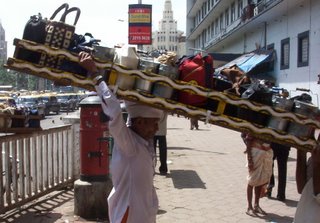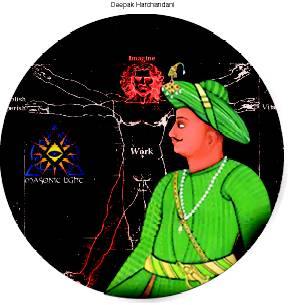Banks at sea over credit card taxService tax on the card transaction chain creates confusion
Source: Economic Times, 5th June '06
George Smith Alexander MUMBAI
THE date for payment of the first installment of service tax on card payments on Monday was marked by confusion among banks.
The confusion arose on account of the fees levied by banks on merchants or establishments where the electronic data capture (EDC) terminals are deployed by banks. Currently, banks which deploy these terminals, called acquiring banks in industry parlance, charge close to 1.5% to the merchants. Of this, around 1.1% goes to the issuing bank, or the bank that has issued the credit or debit card, a small sum is credited to card issuers such as Visa or MasterCard, while the rest is retained by the acquiring bank.
Service tax has been levied on these back-end card transactions with effect from May 1, '06. Generally, the invoice is the basis of service tax assessment, and the date of payment to the service vendor is crucial to determine the due date for tax payment. However, banks are wary as unlike other business deals, no invoice is issued to another person in the card payment chain.
Banks have other worries, too. The date of receipt of consideration for each person is different. Against this backdrop, banks feel that it would be better if
certain crucial aspects of this levy are clarified upfront to avoid litigation in future. This is because the amounts involved are huge. The first due date for tax payment was June 5.
Says Prasad Paranjape, director, RSM Advisory Services, "The government needs to intervene and issue clarifications after talks with industry players as to who the service provider is - the issuing bank, the acquiring bank or
both put together. Does a taxable event occurs when the merchant establishment is charged or an acquiring bank is paid by the issuing bank or when a issuing bank is paid by the card holder needs to be clarified." According to bankers, there is confusion on the transaction chain at which the service tax has to be charged. They feel that the service tax has to be paid on 1.5%, ie on the acquiring fees. However, the way the Finance Act has been worded, the issuing bank would also have to pay on the 1.5% and also again on 1.1%. This would amount to double taxation on the same fees, say bankers and tax experts. Banks have now decided that they would pay fees only on the whole 1.5%. Using this approach, the acquiring bank would pay tax on the 0.2%, while the issuing bank would pay for 1.1%.
Over the past few years, the merchant fees of banks have come down drastically from close to 2.5% to around 1.2-1.3%. Bigger retailers, hotels and others which record heavy transactions, pay lower fees, while smaller retailers and hoteliers pay higher fees of around 1.5-2%. The charges are also marginally higher in the non-metros. Though banks may not charge the service tax on bigger retailers, the impact of this move on smaller merchants remains to be seen.
Assignment - Need to superimpose the above economic dev's implications on to the GEFC cycle..working on it. Meanwhile if any1 hits upon this and has any thought on this, plz post it:-)Well, I came up with the following:Implications on GEFC:The confusion regarding who is the service vendor - issuing bank, the acquiring bank or both put together should be cleared by the Govt.
Also, which is the taxable event - when the merchant establishment is charged or an acquiring bank is paid by the issuing bank or when a issuing bank is paid by the card holder?
Financial Intermediaries:
Given that the service tax is imposed on the banks, whether the issuing bank pays or the acquiring bank pays, there will be an implication on the GEFC. The banks will try to squeeze in this outflow by increasing the service charge to the merchants. Here, the financial intermediaries are affecting the production sector.
Household Sector:
Since the merchant has to pay a higher service charge to the banks, he will try to squeeze in this amount from the customer. Thus, the customer will have to cough up more for the same product which he would have bought at a lower price earlier.
Production Sector:
As the banks will increase the service charge/fee that the merchant has to pay, the merchant’s profits will go down. To maintain the previous level of profit, the merchant will tend to charge more from the customer. Since the merchant charges more from the customer, if the product is a commodity product, there will be no change in its demand/sales. But if the product is a life-style/luxury product, then its demand may go down. Thus, the company or the production sector is affected.
Government:
The Government in any case will benefit as it will get the extra income from the newly imposed service tax. The Government gains from the tax that the vendor pays for the sales done and from the new tax that the banks will now have to pay (for the same transactions that has been already taxed). This, in a way is double taxation benefit to the Government.
Forex:
This sector remains unaffected.


